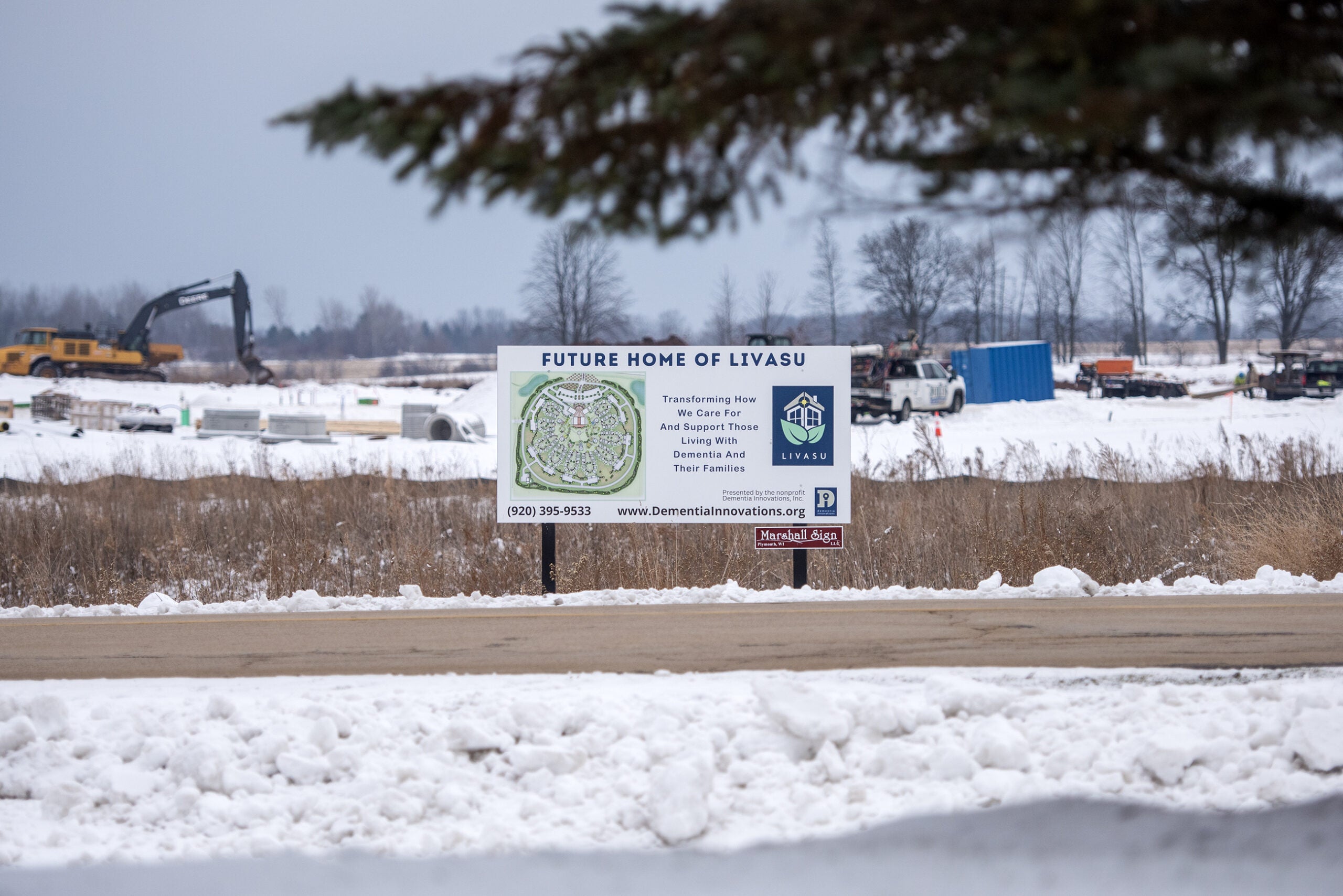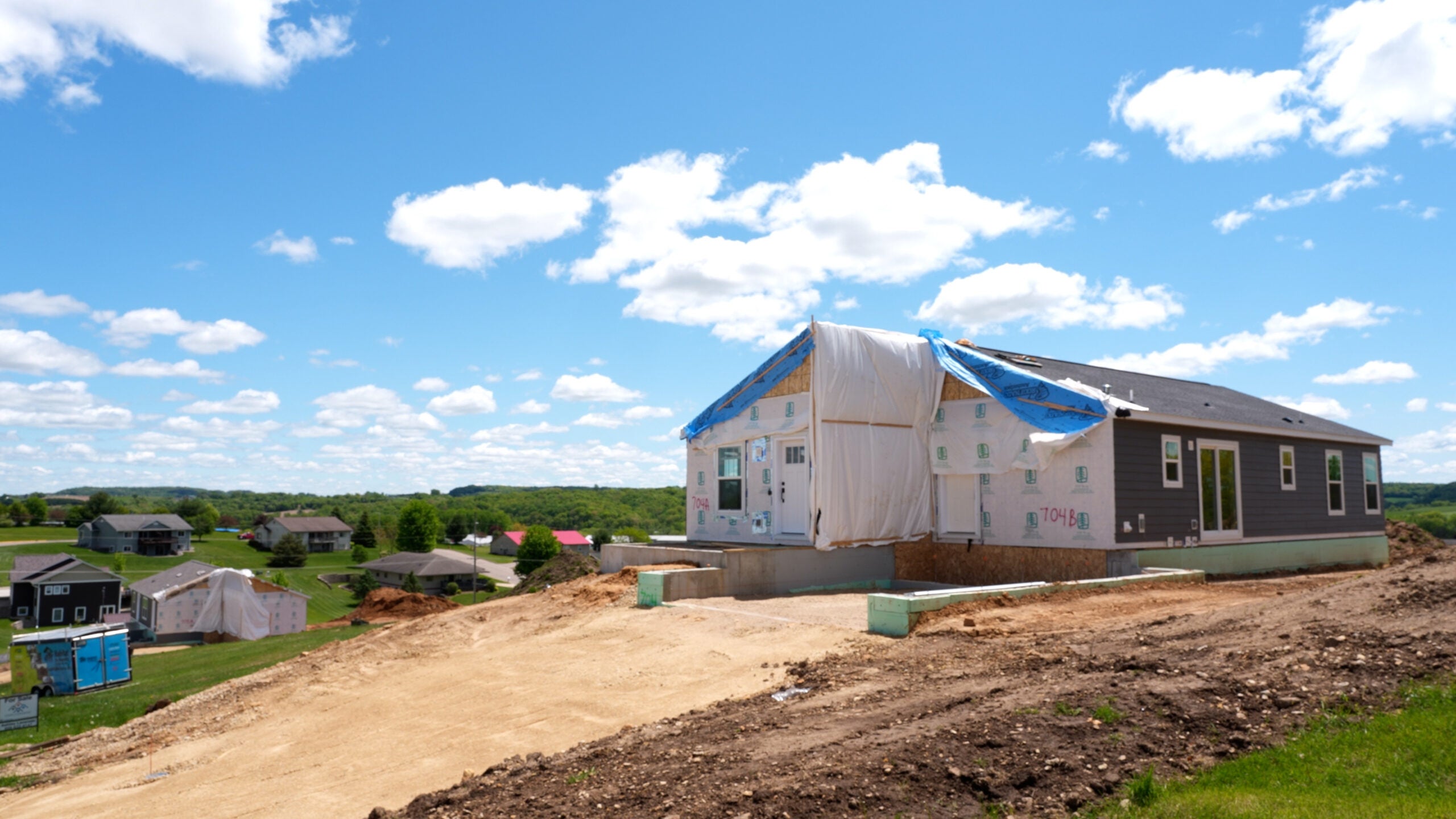A conservative law firm is suing a Door County village over its regulations on short-term rentals limiting the number of bedrooms that can be rented.
Last June, the Sister Bay Village Board approved a zoning ordinance aimed at regulating short-term rentals, better known as Airbnbs or VRBOs. The ordinance says no more than four bedrooms can be rented without permission from the local plan commission.
The ordinance also limited the number of people who can stay at a short-term rental to 12. It was one of a pair of ordinances related to Airbnbs that were revised last year after the village began permitting short-term rentals in 2022.
News with a little more humanity
WPR’s “Wisconsin Today” newsletter keeps you connected to the state you love without feeling overwhelmed. No paywall. No agenda. No corporate filter.
On Monday, the Wisconsin Institute for Law and Liberty filed a lawsuit against Sister Bay, challenging the bedroom limit. WILL is representing four sets of rental owners who were either already renting their properties or had signed contracts to build their properties before the ordinance took effect. All of their properties had more than four bedrooms.
The suit says the property owners were told to lock or limit access to their additional bedrooms, and that their guests could not sleep on futons or pull-out couches.
“They (the rental owners) don’t actually seek to exceed the 12 person limit,” said Luke Berg, deputy counsel for WILL and the attorney in the case. “They just want to let the people who are there use whatever part of the house they want, and it’s hard to see why the village or anyone would have any interest in where people sleep at night.”
While the capacity and bedroom limits were approved in 2023, the lawsuit says they did not go into effect for most rental properties until this July because they had already received their 2023 licenses when the limit was adopted.
Berg said when zoning codes change, state law and local ordinances allow for existing properties to be grandfathered in because they were built before the code changed.
“Two of our clients had properties that they were renting on a short-term basis before that change, so under that rule, they should be grandfathered and exempt from the four bedroom limit,” he said.
WILL’s two other clients were in the process of building their rental properties when the ordinance was passed, according to the suit.
Berg said a separate, but related, state rule would allow them to be grandfathered in as well because they received building permits before the zoning code changed.
The lawsuit also argues the four-bedroom limit violates the state’s “right to rent” law, claiming Sister Bay’s four-bedroom limit effectively bans homeowners with five or more bedrooms from using part of their home as a short-term rental.
WILL is asking for a judge to block Sister Bay from enforcing the four-bedroom limit during and after litigation, and to declare the limit violates state law. It’s also seeking compensation for its clients.
In a statement, Hunter Clinton, one of the plaintiffs in the case, said the rental owners just want to give guests “the best experience” possible.
“Why would we lock away areas of our house that were specifically designed to give guests the most comfort and flexibility? This is an unnecessary and unreasonable rule,” Clinton said.
Sister Bay Village Administrator Julie Schmelzer and Village Board President Nate Bell declined to comment.
Ordinance said to address parking and safety, among other concerns
The zoning ordinance said it was designed to regulate parking, lessen congestion, secure safety, protect property values and preserve the beauty of the community. The revised permitting ordinance said it was responding to “concerns and complaints from residents.”
At the meeting where the Village Board approved the ordinances, Schmelzer said the four bedroom limit, and restricting the number of occupants to three per bedroom, was meant to “reduce the overcrowding in the residential areas.”
During that same meeting, Bell said he wished the state of Wisconsin would give the village more authority over short-term rentals. He said the zoning ordinance would likely need to be reviewed in the future.
“This is not perfect, but it’s what we’ve come up with and what we’ve spent a lot of time on,” Bell said. “It’s not set in stone and can be adjusted, and likely should be adjusted.”
In January, John and Erin Wilson, one of the four pairs of rental owners represented by WILL in the suit, asked the Sister Bay Plan Commission for an exception to the four-bedroom limit. At that meeting, Erin Wilson said they would not exceed the 12-person occupancy limit.
But the plan commission denied their request. Some of the concerns from the commission included potential for congested roadways if they exceeded the occupancy limit, requiring visitors to park on the street, as well as reducing noise in residential neighborhoods.
“I don’t think that we should go beyond four (bedrooms), but I do acknowledge that we’ve probably got some of the more responsible (short-term rental) owners that are actually coming here and showing up,” Bell said at the plan commission meeting.
WILL represented another short-term rental owner in a separate case against Sister Bay, winning a temporary injunction to allow a different property owner to resume renting out its space until a final decision is made in a dispute over renewal of their rental license. Berg said that was another case concerning grandfathering in a property, but it related to zoning regulations regarding a 70-year-old driveway.
Wisconsin Public Radio, © Copyright 2025, Board of Regents of the University of Wisconsin System and Wisconsin Educational Communications Board.







